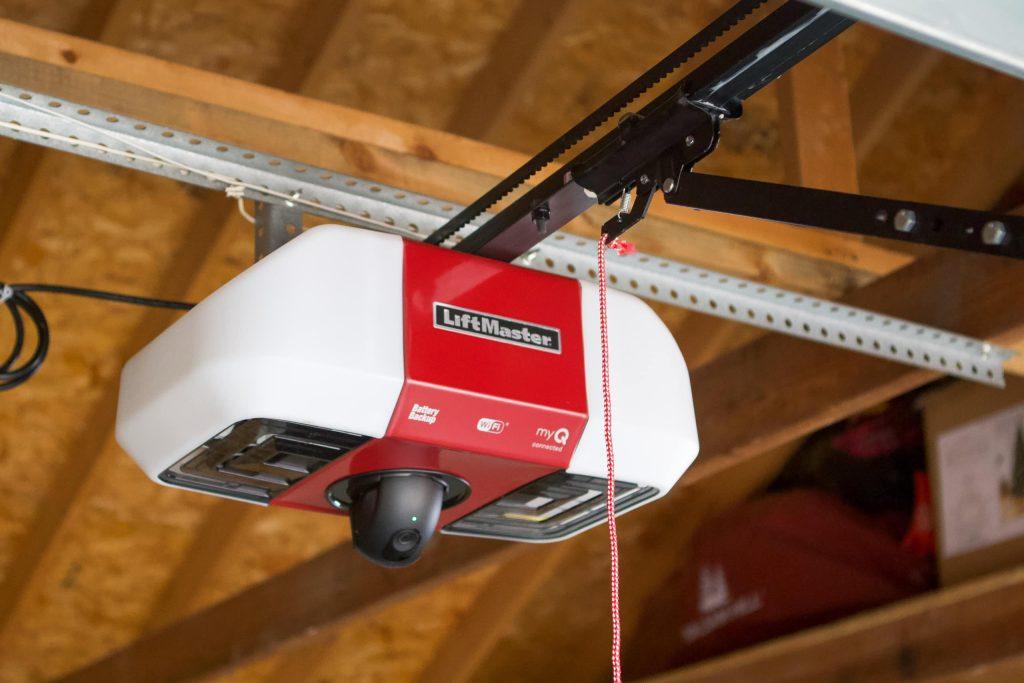
Is your Liftmaster garage door opener hums but doesn’t move? We understand the frustration it can bring, but worry not! In this comprehensive troubleshooting guide, we’ll walk you through the common causes behind this issue and provide step-by-step solutions to get your garage door opener back in action.
Section 1: Understanding the Issue
A Liftmaster garage door opener is designed to smoothly open and close your garage door with ease. However, if you notice that it’s emitting a constant hum without actually moving the door, it’s time to investigate the underlying problem.
It’s important to differentiate the humming sound from the normal operational noises of the opener. If your opener produces a humming noise but doesn’t engage the door, read on to uncover the potential causes and their solutions.
Section 2: Possible Causes and Solutions
2.1: Power-related Issues
First things first, let’s address the power-related possibilities that may be causing your Liftmaster garage door opener to hum without any movement.
Is the Opener Plugged In?
Check if the opener is securely plugged into a power outlet. Sometimes, accidental disconnections can occur, leading to a lack of power supply.
Is the Circuit Breaker Tripped?
Inspect the circuit breaker associated with the garage door opener. If it has tripped, reset it and test the opener again.
Are the Batteries in the Remote Control Depleted?
If you’re using a remote control to operate your opener, it’s worth checking the batteries. Replace them if they are weak or depleted.
2.2: Drive Mechanism Problems
Issues with the drive mechanism can also cause your Liftmaster garage door opener to hum without any movement.
Is the Door Jammed?
Inspect the garage door for any obstructions or objects that may be preventing it from moving freely. Clear any debris and ensure the door moves smoothly along the tracks.
Are the Tracks Obstructed?
Check the tracks for any obstacles that may hinder the movement of the door. Remove any debris, such as dirt or small objects, and lubricate the tracks if necessary.
Is the Trolley Disengaged?
The trolley is the part of the opener that connects to the garage door. If it becomes disengaged, the opener will hum but won’t move the door. Re-engage the trolley according to the manufacturer’s instructions.
2.3: Motor Issues
Motor-related problems can also be responsible for the humming but non-moving garage door opener.
Is the Motor Overheated?
Overheating can cause the motor to temporarily shut down. Give it some time to cool down before attempting to operate the opener again.
Are the Motor Gears Worn Out?
Inspect the motor gears for signs of wear and tear. If they appear damaged or worn out, they may need to be replaced. Refer to the user manual or contact a professional for assistance.
Is the Motor Capacitor Faulty?
A faulty motor capacitor can affect the performance of the opener. Consult a professional technician to diagnose and replace the capacitor if necessary.
2.4: Remote Control Problems
Malfunctions in the remote control can also contribute to the humming but non-moving issue with your Liftmaster garage door opener.
Are the Remote Batteries Weak?
Weak or depleted batteries can prevent the remote control signal from reaching the opener. Replace the batteries and ensure they are properly inserted.
Is the Remote Synced Properly?
If the remote control is not synced with the opener, it may not communicate effectively. Follow the manufacturer’s instructions to sync the remote control with the opener.
Are There Interference Issues?
External interference from nearby devices can disrupt the signal between the remote control and the opener. Keep the opener away from other electronic devices or appliances that may cause interference.
2.5: Professional Assistance
If you’ve tried all the troubleshooting steps and the Liftmaster garage door opener still refuses to cooperate, it may be time to seek professional assistance. Trained technicians have the expertise to diagnose and resolve complex issues that may require specialized tools or replacement parts.
Section 3: Preventive Measures and Maintenance Tips
To prevent future problems with your Liftmaster garage door opener, it’s essential to perform regular maintenance and care.
- Lubricate the moving parts, such as the tracks and hinges, to ensure smooth operation.
- Check the alignment of the door regularly to avoid strain on the opener.
- Keep the opener clean from dust and debris.
- Consult the user manual for specific maintenance recommendations from Liftmaster.
By following these preventive measures and maintenance tips, you can extend the lifespan of your garage door opener and minimize the chances of encountering problems in the future.
Frequently Asked Questions (FAQs)
Q: What other problems can cause a garage door opener to hum but not move?
Q: How do I reset my Liftmaster garage door opener?
Q: Can I replace the motor in my Liftmaster opener myself?
Q: Is it safe to disconnect the opener and operate the garage door manually?
Q: How often should I perform maintenance on my garage door opener?
These FAQs cover additional queries you may have regarding your Liftmaster garage door opener. Refer to them for further clarification on related topics.
Remember, if you’re uncertain or uncomfortable performing any troubleshooting steps, it’s always best to consult a professional technician for assistance.
Now armed with this troubleshooting guide, you can confidently address the issue of your Liftmaster garage door opener humming but not moving. With the proper diagnosis and solutions at hand, you’ll soon have your garage door opening and closing effortlessly once again.



Leave a Reply